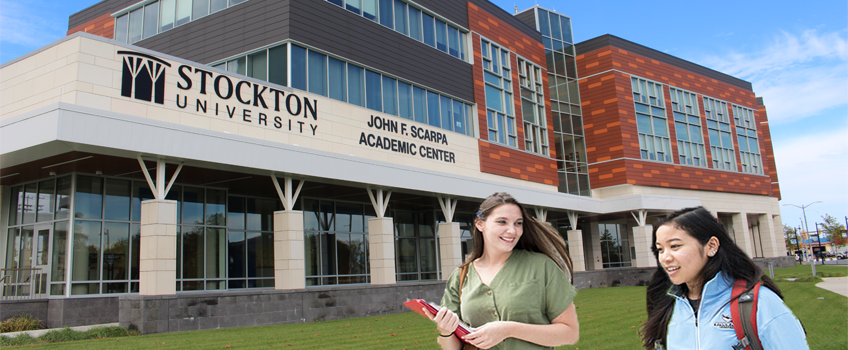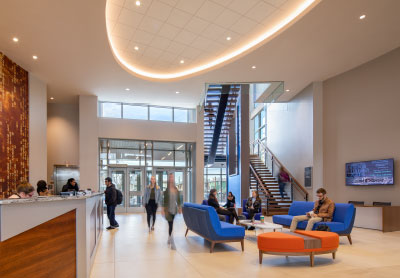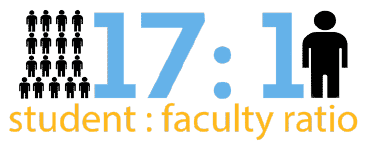Academics at Stockton University Atlantic City
 Stockton University Atlantic City offers the chance to live and learn in a coastal
city with all of the academic and applied learning resources available on main campus.
Courses span the curriculum, and also include a full selection of General Studies
offerings.
Stockton University Atlantic City offers the chance to live and learn in a coastal
city with all of the academic and applied learning resources available on main campus.
Courses span the curriculum, and also include a full selection of General Studies
offerings.
Click HERE to search for courses being offered on the AC campus during the upcoming semester!
Select from courses in the following areas of study:
Accounting
Finance
Management
Marketing
Pre-Law
Business
Communication
Education
First Year Studies
Arts and Humanities
General Studies
Geographic Information Systems
Natural Sciences and Mathematics
Global Studies
Hospitality and Tourism Management
Instructional Technology
L.E.A.D.
Psychology
Social Work
Sociology
Featured Academic Programs

Hospitality & Tourism Management Studies
Atlantic City’s history as America’s Playground provides the perfect environment for the Hospitality and Tourism Management Studies program. It is accredited by the Association to Advance Collegiate Schools of Business.

Ed.D. Organizational Leadership
Stockton's doctoral program in Organizational Leadership is a flexible, innovative program designed for full-time professionals from business, education, government, military, faith-based, health care and non-profit organizations.

Business Studies
The undergraduate business program is offering courses in Accounting, Finance, Marketing and Law. The Stockton School of Business has earned accreditation by the Association to Advance Collegiate Schools of Business.

Social Work
Atlantic City offers the ideal setting for an innovative curriculum that prepares the prospective social worker. Students gain hands-on experience, using Atlantic City as a living-learning laboratory through clinical placements and service projects.

Education Program Alternate-Certificate of Eligibility
The Alternate Route program is for those individuals who have undergraduate or graduate degrees with a 3.0 or higher GPA, but have not completed an accredited teacher preparation program to become a NJ certified teacher.

Liberal Studies B.A. with concentration in Community Leadership & Civic Engagement (LIBA/CLCE)
Are you looking to make a difference in the community? Stockton offers a way to learn, lead and interact outside the classroom
Community Reporting Innovation Lab (CRIL)
CRIL is designed as a place-based learning environment that will equally value community partners and student learning. Different from any lab currently established at Stockton University, it is a space that includes computers, reporting equipment and meeting areas. Accessible to the staff from The Press of Atlantic City, and additional community storytellers, it is a space capable of hosting a daily editorial meeting as well as a place to pitch stories, work on editing a video or record a podcast. Students will have the opportunity to work shoulder-to-shoulder with professional writers. As needed, the lab will transform into a nighttime newsroom where stories are filed on deadline and breaking news is digested and curated for the next edition. Acting as an additional access point for reporting and collaborating with Atlantic City residents, this lab is an exciting space dedicated to innovation and cutting-edge trends in journalism education and community reporting. The Lab is part of the Communication Studies Program within the School of Arts and Humanities.

Accreditations
-
Stockton University is accredited by the Middle States Commission on Higher Education
-
The School of Business is accredited by Association to Advance Collegiate Schools of Business
-
Master of Social Work Program is accredited by the Council on Social Work Education




